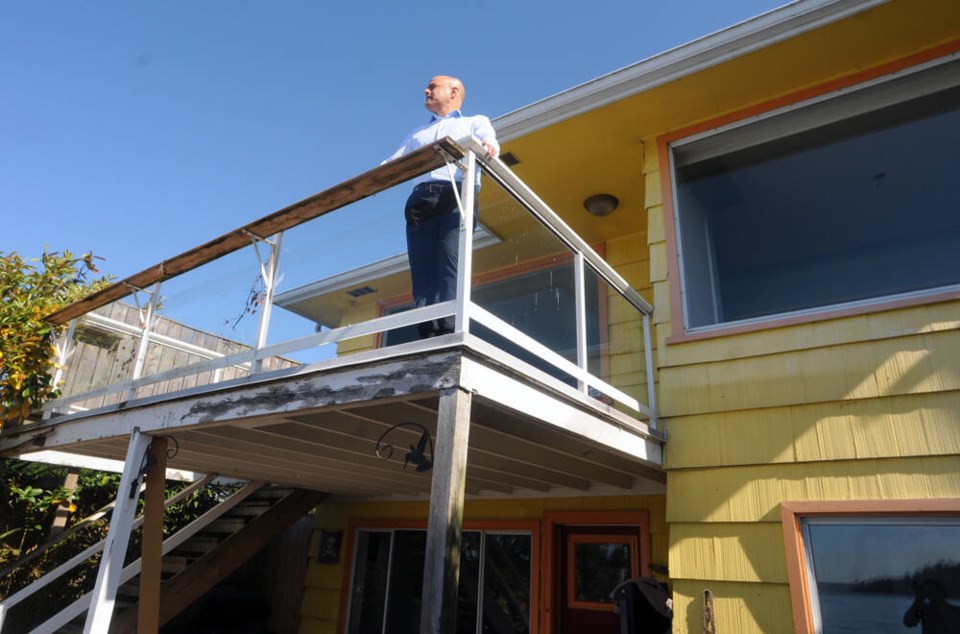Jimmy Pattison’s former home on the West Vancouver waterfront is once again slated for demolition after a deal to move the house fell through.
The District of West Vancouver acquired the little yellow house on Argyle Avenue in January as part of a years-long plan to acquire all of the homes on the Ambleside waterfront and convert them to park land.
The district paid business magnate Pattison $5.18 million – roughly the same price Pattison paid the district for two treed lots in the former Brissenden Park in upper Dundarave, effectively creating a land swap.
Wanting to keep the still-solid structure out of the landfill, the District of West Vancouver put the house on the market for $1 in June and awarded the house to a proponent who planned to barge it away and repurpose it as a non-profit bereavement centre in Metro Vancouver.
That deal has since collapsed, according to the district.
“I think the proponent that it was awarded to didn’t do his due diligence as well as he thought,” said John Wong, facilities manager for the district. “When they went to the details of what was required, it was a lot more money and lot more complicated than he had anticipated.”
Wong said district staff weren’t briefed on what the cost of moving the structure would be or how it differed from initial estimates, but he said that after the deal fell apart, the municipality approached other potential bidders who had expressed interest in the house only to find they too had reached the same conclusion.
“The moving cost was too prohibitive,” he said.
The change comes as a disappointment, Wong said.
“For all of us, for sure,” he said. “Our goal was to be more sustainable and hopefully, somebody would have found some value in it, but I’m getting a sense that although people are supportive of the initiative, it really comes down to cost.”
The house didn’t have any particular heritage value, apart from its one notable previous inhabitant, Wong said. Pattison bought the house in the 1950s when he was still working as a salesman for a General Motors dealership. When he decided to go into business for himself in 1961, he used his equity in the home to get his first $40,000 loan.
The plan was to have the house up and gone by Dec. 1. Wong said they are now reviewing their options, but unless someone comes forward to claim the house in a hurry, it will most likely be demolished to make way for green space.
“Obviously, the sooner, the better,” he said.
Although the clock is ticking, there almost certainly is another taker out there for the house, said Gil Yaron, head of the non-profit organization Light House, which advocates for homes to be relocated rather than demolished.
“We know we can move that house,” he said. “It’s unfortunate to hear that that deal fell through, but we’re confident that we can secure another home for the house and ensure that it is retained.”
Light House works with developers and First Nations to find good candidates for relocation and gets them sent to more rural communities for affordable housing.
“The cost to move it and to retrofit it, in most instances, should be less than building a stick-frame house from scratch,” he said.
Because they are non-profit, they are eligible for grant funding that can further offset those costs, Yaron added.
There is just one house remaining on Argyle Avenue to be purchased by the district and converted into park space. Wong said they are in negotiations with the owner for that land but there is no timeline for when it might be acquired.





